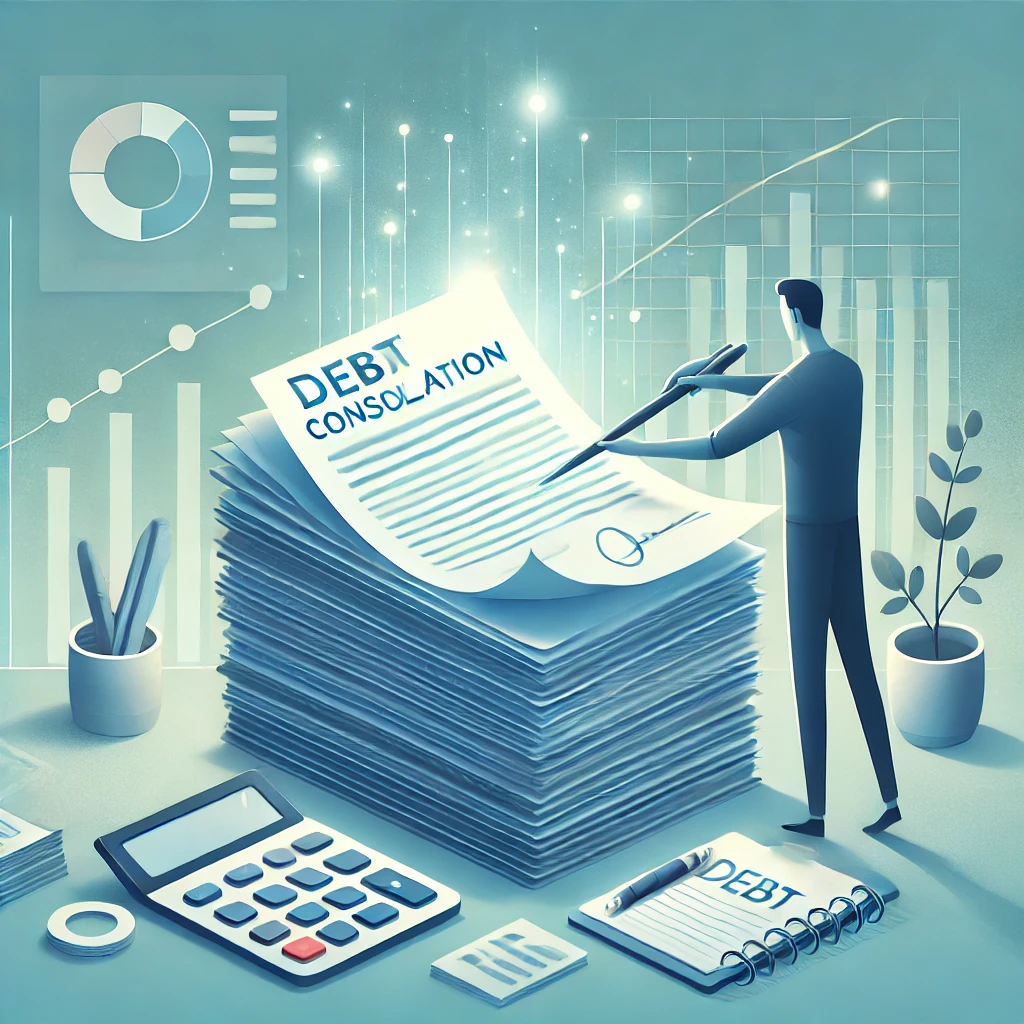Debt can often feel like an overwhelming burden, especially when you have multiple loans or credit card balances to juggle. If you find yourself in this situation, a debt consolidation loan might be the financial tool you need to regain control. This article will explore what debt consolidation loans are, how they work, their benefits and drawbacks, and whether they might be the right solution for you.

What is a Debt Consolidation Loan?
A debt consolidation loan is a type of personal loan that allows you to combine multiple debts into a single loan with one monthly payment. Instead of keeping track of several due dates, interest rates, and minimum payments, you consolidate everything into one account. This can simplify your financial life and, in some cases, save you money on interest.
Debt consolidation loans are typically offered by banks, credit unions, and online lenders. They are often unsecured, meaning you don’t need to provide collateral like a house or car to qualify. However, some lenders offer secured debt consolidation loans, which may come with lower interest rates but require you to back the loan with an asset.
How Do Debt Consolidation Loans Work?
Here’s how the process typically unfolds:
- Evaluate Your Debt: Calculate the total amount of your outstanding debts, including credit card balances, medical bills, and other loans.
- Compare Lenders: Research lenders and compare their interest rates, loan terms, and fees. Online tools can help you pre-qualify and estimate your loan terms without impacting your credit score.
- Apply for the Loan: Once you’ve chosen a lender, submit your application. You’ll likely need to provide proof of income, a list of your debts, and other financial documents.
- Pay Off Your Debts: If approved, the lender will either pay off your creditors directly or deposit the funds into your account, allowing you to settle your debts yourself.
- Make One Monthly Payment: Moving forward, you’ll make a single monthly payment to your new lender until the loan is repaid.
Benefits of a Debt Consolidation Loan
- Simplified Payments: Managing one payment each month instead of several reduces the risk of missing a payment and incurring late fees.
- Potentially Lower Interest Rates: If you qualify for a lower interest rate than your existing debts, you can save money over the life of the loan.
- Improved Credit Score: By paying off high-interest credit card balances, you may lower your credit utilization ratio, which can boost your credit score.
- Fixed Repayment Schedule: Unlike credit cards, which allow for minimum payments that can extend your debt indefinitely, a loan has a fixed repayment term, ensuring you’re debt-free by a certain date.
Drawbacks to Consider
- Qualification Requirements: If your credit score is low, you may struggle to qualify for a debt consolidation loan with favorable terms.
- Fees and Costs: Some loans come with origination fees, prepayment penalties, or other charges that can add to your costs.
- Risk of Accumulating More Debt: Consolidating your debt doesn’t address the habits that led to the debt. Without disciplined spending, you might end up accumulating new debt.
- Secured Loan Risks: If you opt for a secured loan, you risk losing your collateral if you fail to make payments.
Is a Debt Consolidation Loan Right for You?
A debt consolidation loan might be a good option if:
- You have multiple high-interest debts, such as credit cards or payday loans.
- You have a stable income and can commit to regular monthly payments.
- Your credit score qualifies you for a lower interest rate.
- You want a structured plan to become debt-free within a specific timeframe.
However, it’s not the best solution for everyone. If your debt is relatively small and you can pay it off within a year or two, the cost of taking out a loan may outweigh the benefits. Similarly, if your spending habits are not under control, consolidating your debt could lead to more financial trouble.
Tips for Successful Debt Consolidation
- Create a Budget: Understand your income and expenses to ensure you can afford your new monthly payment.
- Avoid New Debt: Commit to not using credit cards or taking out additional loans while paying off your consolidation loan.
- Compare Multiple Lenders: Shop around to find the best terms and interest rates for your situation.
- Read the Fine Print: Understand the terms of your loan, including fees, interest rates, and repayment schedules.
- Consider Alternatives: Explore other debt relief options, such as balance transfer credit cards, credit counseling, or negotiating directly with creditors.
Conclusion
Debt consolidation loans can be a powerful tool to simplify your finances and take control of your debt. However, they are not a one-size-fits-all solution. By carefully evaluating your financial situation, researching your options, and adopting disciplined financial habits, you can decide whether a debt consolidation loan is the right step for you. Remember, the goal is not just to manage debt but to eliminate it and build a more secure financial future.
